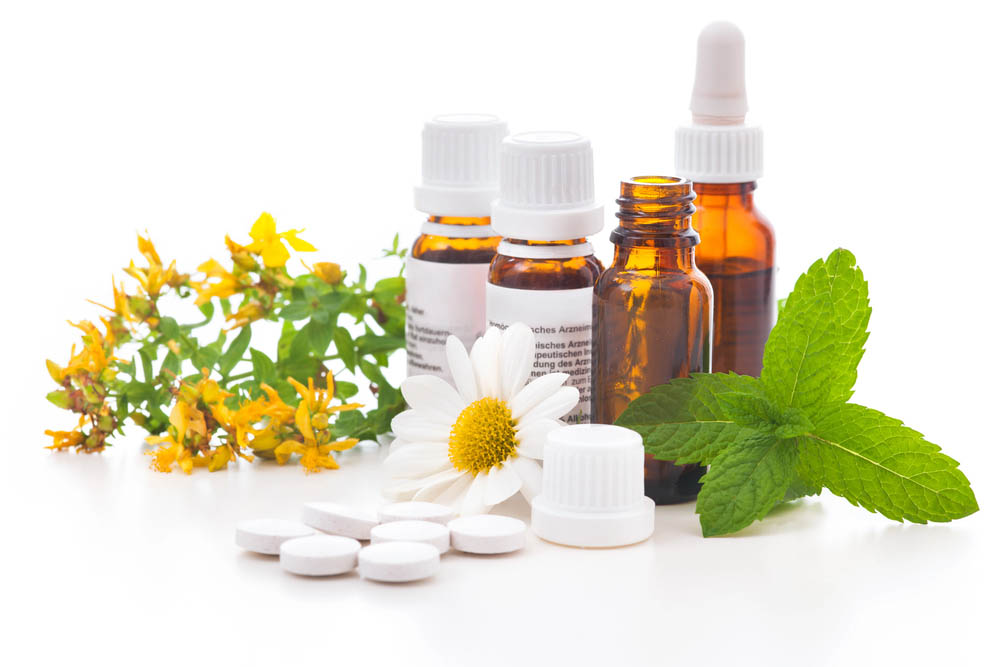A new scoping review found that many herbal supplements are as good as prescription drugs at treating depression. The study—including 209 trials of various products—found that St. John’s Wort was at least as good as antidepressants (beating them in some studies). Other supplements like probiotics, saffron, and vitamin D beat placebo more consistently than antidepressant drugs.
St. John’s Wort directly beat antidepressants in four studies and had the same efficacy as the drugs in 11 studies. Only one study found it to be worse than antidepressants.
Compared to placebo, antidepressant drugs (which beat placebo in 51% all clinical trials) are less consistently effective than saffron (beating placebo in 73% of trials), vitamin D (beating placebo in 67% of trials), St. John’s Wort (beating placebo in 64% of trials), and probiotics (beating placebo in 60% of trials).
Some supplements fare worse, however. Omega-3s only beat placebo in 36% of trials, making them a worse option.
Other supplements had “promising” results in the current review, but these came from just a handful of small studies with variable doses and preparations. Thus, these products certainly require more research before researchers can say they are effective. These include folic acid, lavender, zinc, tryptophan, rhodiola, and lemon balm.
Some supplements, like melatonin and magnesium, showed mixed results even in the few, small studies in which they were evaluated, making them less promising.
The study, published in Frontiers in Pharmacology, was led by Rachael Frost at Liverpool John Moores University and University College London.
Although psychiatrists often warn patients about St. John’s Wort since it can interact with other drugs and cause serotonin syndrome, this is also true of prescription antidepressants. A review from 2016 found that antidepressants caused significantly more adverse effects and more people dropped out of the antidepressant drug trials due to drug harms. That review concluded that “St John’s wort extract is safer than SSRIs.”
In the current study, 69% of the trials reported data on adverse effects; 85% of those found no significant harms compared to placebo. In the few cases of increased side effects, they were considered mild.
“A substantial number of trials did not report sufficient safety data, particularly for dietary supplements. However, in those that did, most products had a good safety profile,” the researchers write.
















Thank you! More studies like this I hope.
Report comment
Well since antidepressants only work if the placebo effect it in place, meaning the dr. tells you that you will be happy then the supplements are sure to be just as effective.
Report comment
A very interesting point. I would bet if you dug into the explanations for why these supplements purportedly help people, it’s going to be the same stuff about neurotransmitters.
Report comment
Actually, you have to understand why some psychiatrists think that antidepressants work when in fact the science shows they really don’t. You see, antidepressants and antipsychotics do not actually treat anything! They are in fact just addictive neurotoxins that cause withdrawal psychosis upon abrupt discontinuation! So what happens is that people stop taking their meds and develop withdrawal psychosis, and the doctors believe that this is the mental illness coming back. When the drugs are re-introduced, the withdrawal psychosis usually goes away, giving the appearance that the drugs work. In reality the drugs do not work at all, they merely treat the very same problem they create which is the withdrawal psychosis!
Report comment
This succinctly explains what i have suspected
Report comment
It’s not just herbal supplements; it’s also exercise! Here’s an article talking about how exercise is a better option than psych meds: https://totalmentalhealth.info/exercise-vs-antidepressants-a-comparison/
Report comment
I know it is true that there are many things more effective than the psychiatric drugs! In fact, most psychiatric drugs are nothing but addictive neurotoxins which cause mental illness but treat nothing! Because the psychiatric drugs are artificial chemicals discovered by big pharma, absolute monopolies have been granted to ensure maximum “money flow”! In truth, doctors are mandated by law to treat psychiatric disorders with these fraudulent artificial chemicals only! This is all about making money for the drug companies and for the psychiatric institutions, because if society were to actually reduce mental illness, then there wouldn’t need to be as much spending on psychiatry! It is safe to estimate that 90% of cases of severe mental illness in the U.S. are caused by the psychiatric neurotoxins for purposes of ensuring maximum money flow to the numerous big businesses involved! We can’t fight back for corporate online platforms like YouTube will ban us right away! We live in a totalitarian dictatorship or corporate oligarchy here in America! The only thing we can do is refuse to take their neurotoxins and lie to them as needed! I am tapering off the last of the neurotoxins and I am using ordinary food spices from the grocery store to boost my mood and improve my life!
Report comment